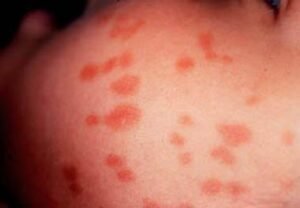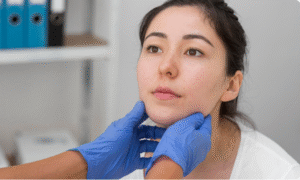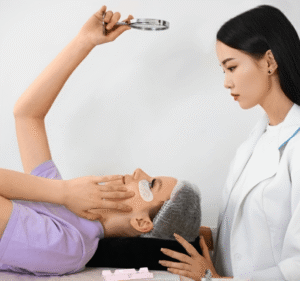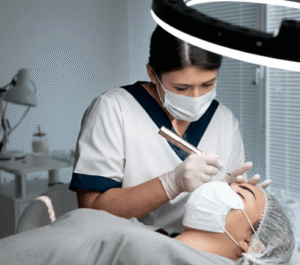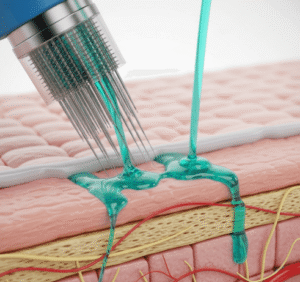➤ Overview
Seizures, commonly known as fits, are sudden, uncontrolled electrical disturbances in the brain that can alter behavior, movements, sensations, or consciousness. They can range from brief lapses of awareness to full-body convulsions.
In South Korea, seizures are evaluated by neurologists and epileptologists, using advanced diagnostic tools like EEG, MRI, and genetic testing. Timely assessment is crucial to identify the underlying cause, prevent complications, and optimize treatment.
➤ Key Facts
→ Seizures can be focal (localized) or generalized (involving the whole brain).
→ Epilepsy is diagnosed when two or more unprovoked seizures occur.
→ Seizures may affect people of any age, though they commonly present in children and older adults.
→ In Korea, EEG monitoring, brain imaging, and blood tests are standard for evaluation.
→ Seizures can result from neurological disorders, metabolic imbalances, infections, or injuries.
→ Prompt treatment can reduce recurrence, prevent injuries, and improve quality of life.
→ Seizures may be triggered by stress, sleep deprivation, or flashing lights, depending on individual susceptibility.
➤ What is a Seizure?
A seizure is a sudden surge of electrical activity in the brain, disrupting normal neuronal signaling:
→ Focal seizures – Occur in one area of the brain; symptoms depend on the region affected.
→ Generalized seizures – Involve both hemispheres; include tonic-clonic, absence, myoclonic, and atonic seizures.
→ Febrile seizures – Triggered by high fever, commonly in children.
→ Status epilepticus – Prolonged seizure lasting more than 5 minutes; a medical emergency.
Korean neurologists carefully evaluate duration, type, frequency, and triggers to guide management and treatment strategies.
➤ What Symptoms are Related to Seizures?
Seizures may present with a wide range of symptoms, depending on type and severity:
→ Sudden loss of consciousness or awareness.
→ Convulsions or jerking movements of the arms and legs.
→ Staring spells (typical of absence seizures).
→ Tingling, numbness, or visual changes before or during seizure.
→ Loss of bladder or bowel control during convulsions.
→ Tongue biting or frothing at the mouth in tonic-clonic seizures.
→ Confusion, drowsiness, or memory gaps after the seizure (postictal state).
→ Aura – Pre-seizure warning sensation, such as unusual smells, tastes, or feelings.
➤ What Causes / Possible Causes?
Seizures can be triggered by neurological, metabolic, infectious, or genetic factors:
→ Epilepsy – Chronic neurological disorder causing recurrent seizures.
→ Brain injury or trauma – Head injury, stroke, or surgical procedures.
→ Infections – Meningitis, encephalitis, or systemic infections.
→ Metabolic imbalances – Low blood sugar, electrolyte disturbances, or kidney/liver failure.
→ Tumors or structural brain abnormalities – Benign or malignant growths.
→ Genetic predisposition – Family history of epilepsy or seizure disorders.
→ Drug or alcohol use/withdrawal – Certain medications, recreational drugs, or alcohol.
→ Febrile episodes – High fever, especially in children.
→ Sleep deprivation or stress – Common seizure triggers in susceptible individuals.
➤ When Should I See My Doctor?
Medical attention is essential if seizures are new, prolonged, or associated with concerning features:
→ First-time seizure – Any unexplained seizure requires evaluation.
→ Seizures lasting more than 5 minutes – Status epilepticus is life-threatening.
→ Recurrent seizures – Despite treatment, requiring adjustment of therapy.
→ Seizures with head injury, severe headache, or neurological deficits.
→ In children or elderly with new-onset seizures.
→ Seizures triggered by fever, infection, or metabolic disturbances.
→ Post-seizure confusion or injuries – Falls, burns, or accidents during seizure.
➤ Care and Treatment
Management depends on the cause, type, and severity of seizures:
→ Anti-seizure medications (AEDs) – First-line treatment for epilepsy.
→ Lifestyle modifications – Adequate sleep, stress management, avoiding triggers.
→ Emergency care – For prolonged or severe seizures (status epilepticus).
→ Surgical interventions – For refractory epilepsy caused by localized brain abnormalities.
→ Vagus nerve stimulation (VNS) or responsive neurostimulation (RNS) – Advanced therapies for drug-resistant seizures.
→ Treatment of underlying causes – Infection, metabolic imbalance, or structural brain problem.
→ Patient education – Seizure safety, first aid, and adherence to therapy.
→ Support groups and counseling – Psychological support for individuals and families.
➤ Treatment Options in Korea
South Korea provides state-of-the-art neurological care for seizure disorders, integrating diagnostics, medical therapy, and advanced surgical interventions:
Diagnosis in Korea
→ EEG monitoring – Detects abnormal electrical brain activity.
→ MRI or CT scans – Evaluate structural abnormalities or tumors.
→ Blood tests – Assess metabolic imbalances, infections, or medication levels.
→ Video EEG monitoring – For precise seizure localization before surgery.
Medical Treatments in Korea
→ AEDs – Wide range of anti-seizure medications tailored to seizure type.
→ Emergency protocols – Rapid intervention for status epilepticus.
→ Lifestyle and education programs – Support patients in seizure management.
Advanced Therapies in Korea
→ Epilepsy surgery – For drug-resistant focal seizures.
→ Vagus nerve stimulation (VNS) – Implantable device to reduce seizure frequency.
→ Responsive neurostimulation (RNS) – Device monitoring and delivering targeted electrical stimulation.
→ Multidisciplinary care – Neurology, neurosurgery, psychiatry, and rehabilitation services.
Rehabilitation & Support in Korea
→ Guidance on daily activity management, seizure safety, and medication adherence.
→ Psychological counseling to address anxiety, depression, or social stigma.
→ Support networks for patients and families to navigate epilepsy care.



